Building Productive and Thriving Teams
A Single Step’s Director, Chris Pye, has spent twenty-five years working in and alongside the Helping Professions, which has shaped his approach to supporting teams. He combines his knowledge of these sectors with expertise in group facilitation and leadership coaching, to create powerful learning and development opportunities for teams, informed by A Single Step’s core values

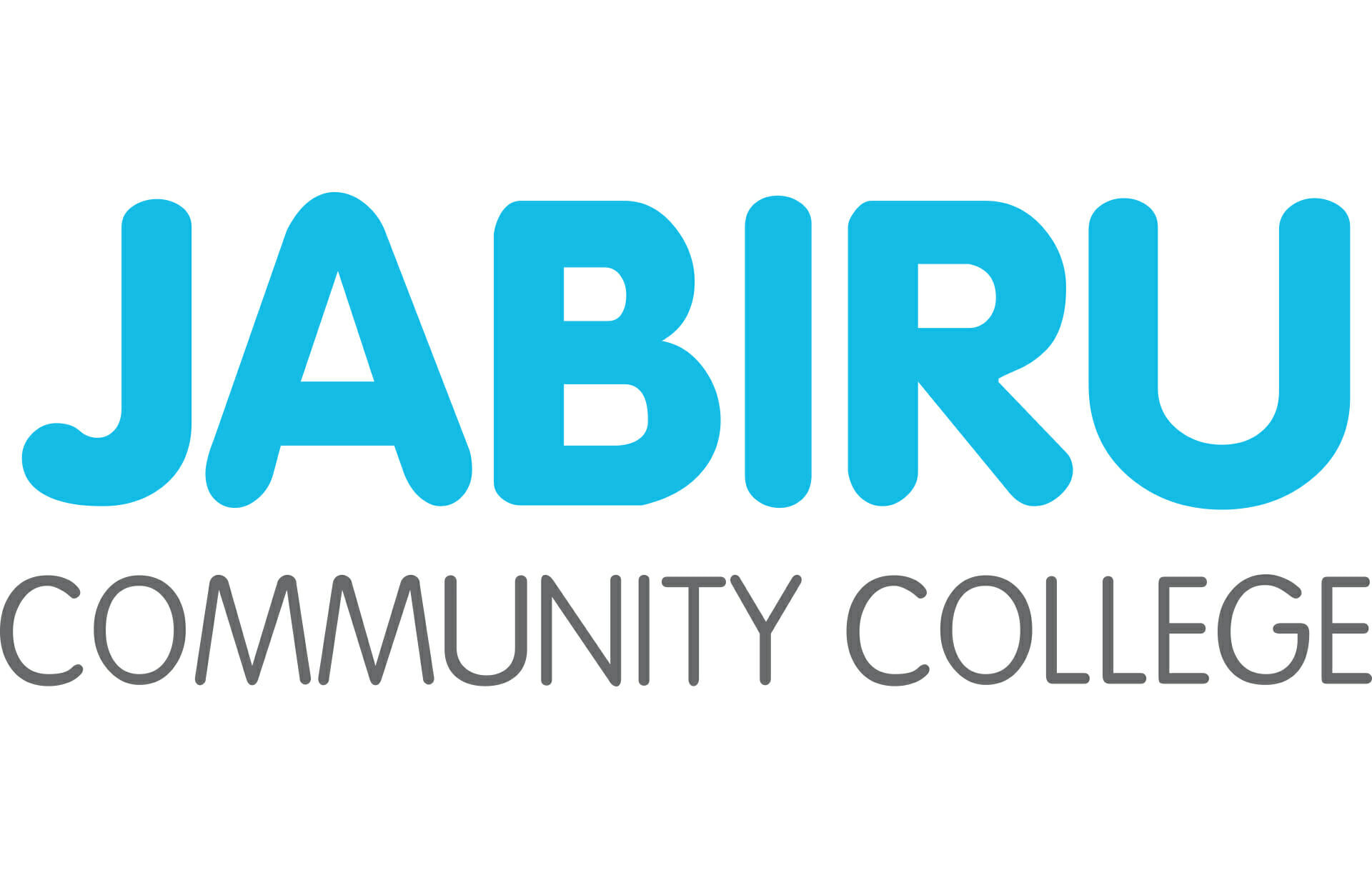
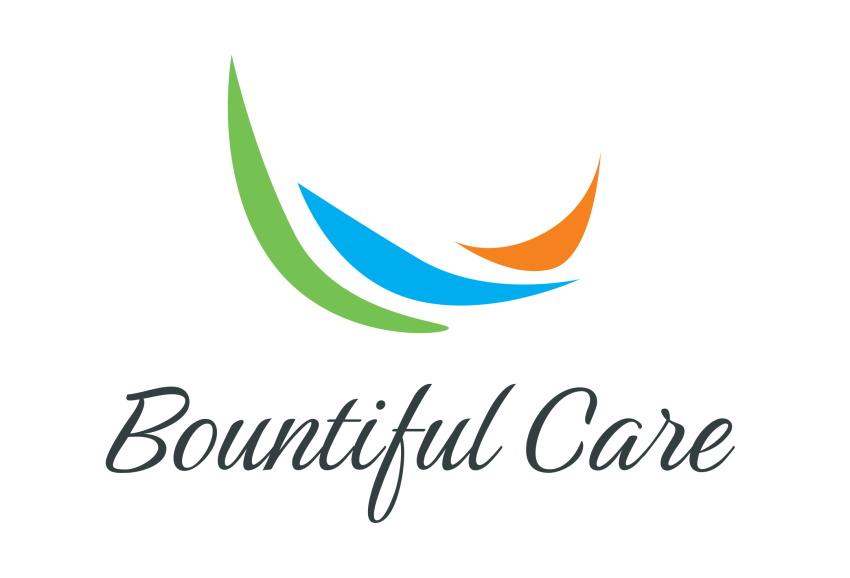



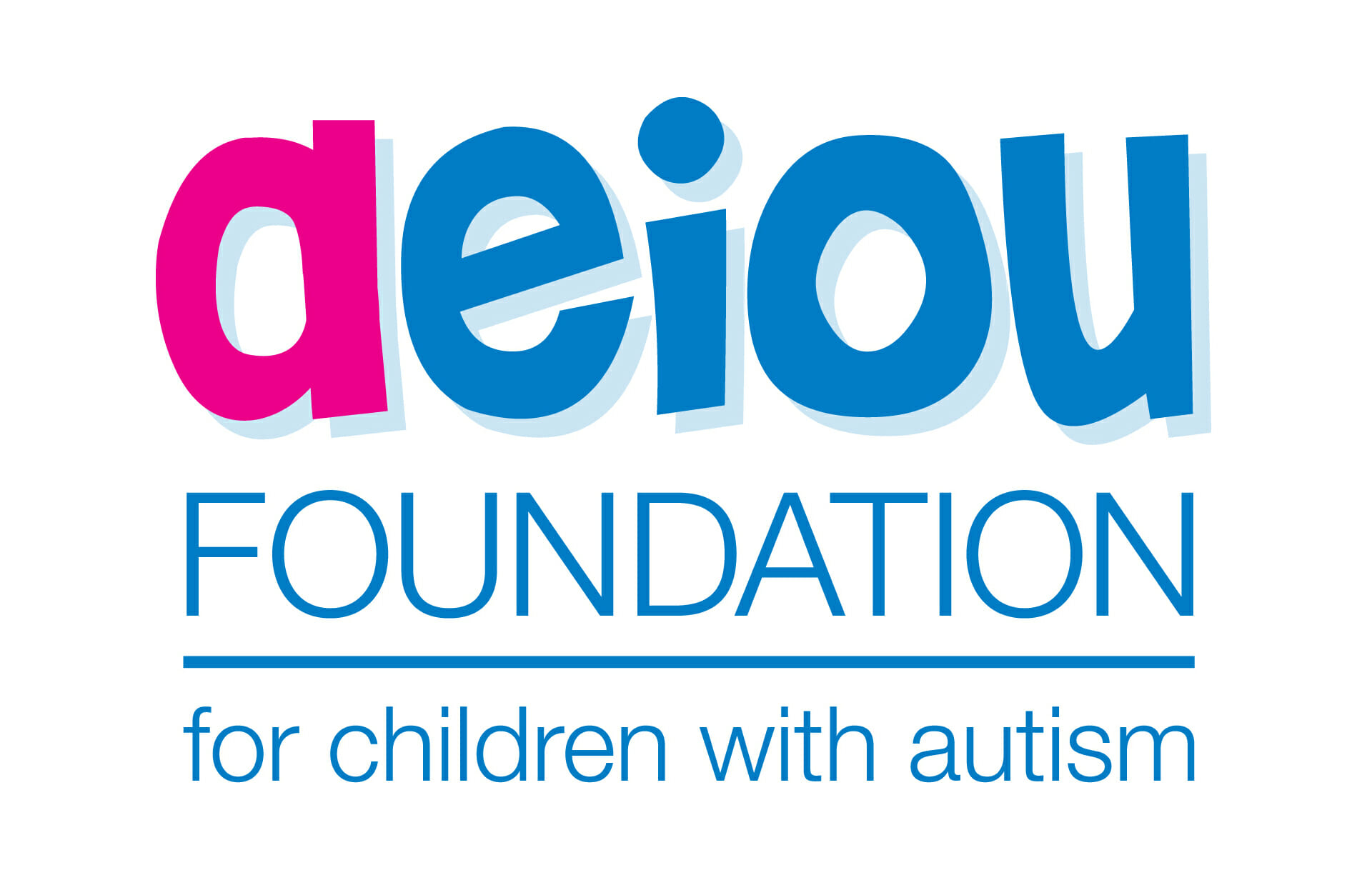

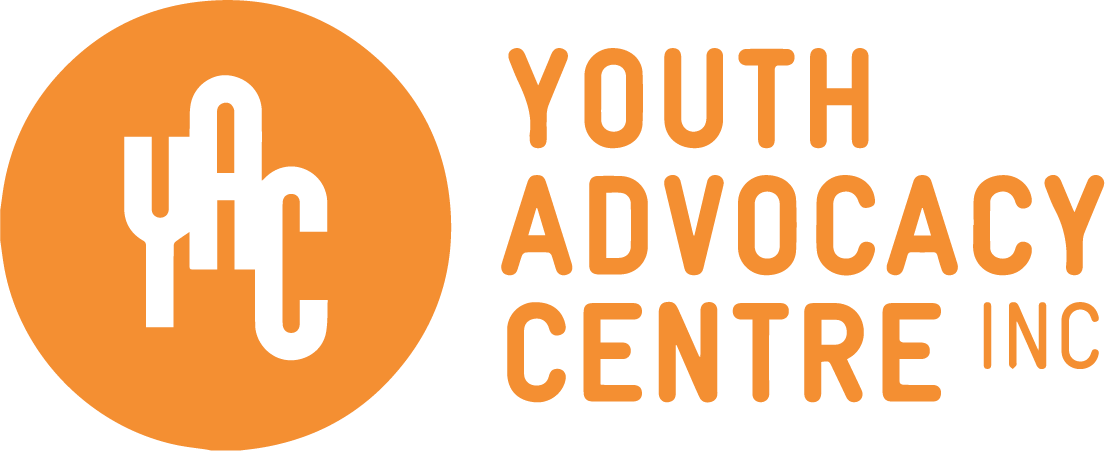




Leadership Coaching
Thriving teams grow from working environments that are safe, inclusive and challenging.
At the heart of every productive and thriving team are solid relationships and safe, inclusive leadership. But when these are interrupted, the team can feel unstable and uncertain, resulting in:
- Poor staff morale
- Reduced productivity
- Heightened stress and feelings of overwhelm
- High staff turnover
Leadership Teams the world over are increasingly recognising the power of Team and Individual Leadership Coaching, to build thriving teams.
Safe, Inclusive, Challenging
At A Single Step we walk alongside you, providing safe, inclusive and challenging learning spaces for the professional growth and development of your leaders at executive, senior leadership and program levels.
What is involved?
Team and Individual Coaching sessions, scheduled at regular intervals, will help team members explore issues and themes that relate to the collective team experience. They will be supported to identify and negotiate internal and external impacts on team performance and make targeted adjustments.
The role of a Team Coach is to ask the right questions to help the team focus on what is important, understand what is helping and hindering their performance, and build cohesion, towards greater harmony and productivity.
Because we work exclusively with the Helping Professions, we understand the prevalence of trauma and stress in the lives of both clients and workers in this sector. We employ a trauma-informed-care approach to every program we facilitate.
The Next Step
Where practical, we will work with your team live, in your workplace. For individual coaching sessions, Zoom (or your preferred online meeting platform) is an effective and flexible alternative.
Why not invite Chris Pye of A Single Step to come and meet with your management committee or executive team, to hear, with no obligation, how he supports organisations to grow happier, more productive and thriving teams.
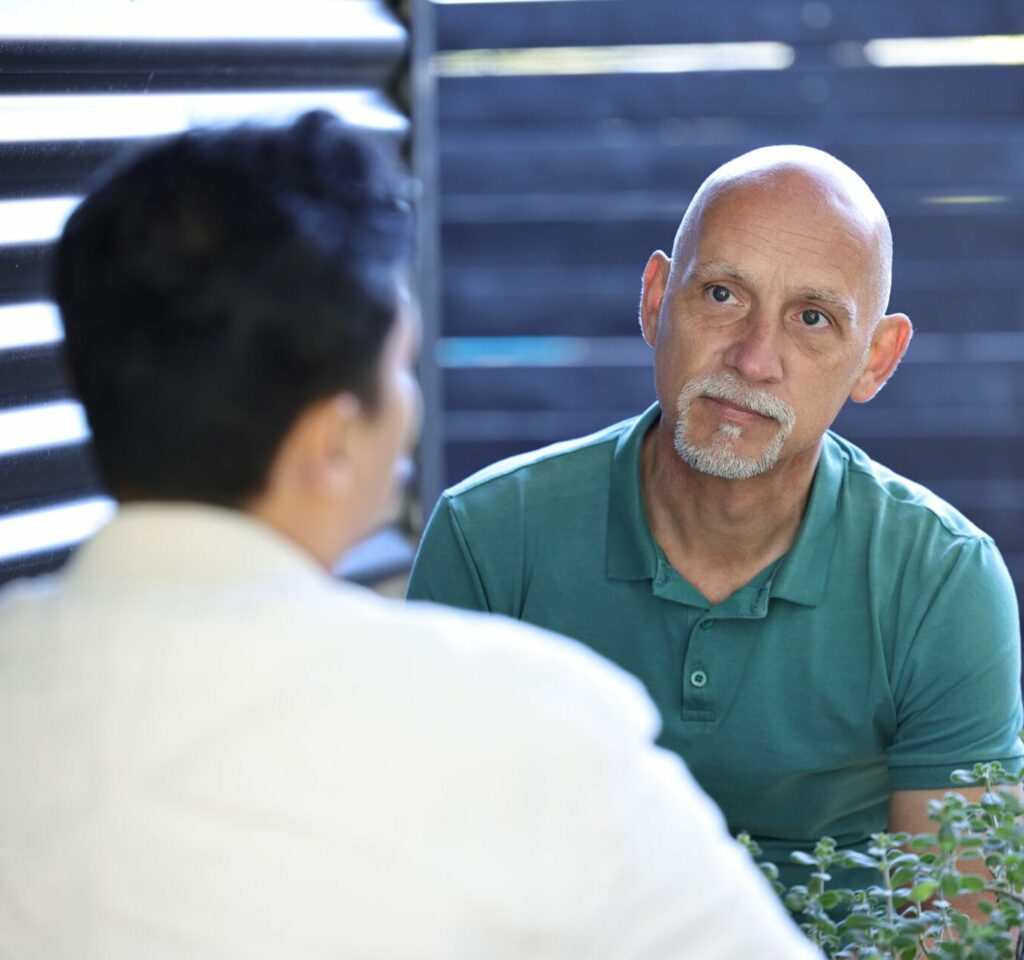
Clinical Supervision
Make A Single Step your designated workplace Clinical Supervisor
A Single Step’s Chris Pye is an experienced and PACFA-Accredited Clinical Supervisor, with over fifteen years’ experience in providing clinical support to Counsellors and Psychotherapists; Youth and Community Workers.
Chris Pye offers experience and knowledge from a range of professional roles within the helping professions, including:
- Youth Worker
- Applied Theatre Practitioner
- Family & Relationship Counsellor
- Clinical Supervisor
- Program Coordinator
- Diversity & Inclusion Manager
- Trauma Therapist
An Eclectic Approach
The most influential factor in successful clinical supervision is a safe and supportive supervisory alliance. Understanding this, Chris works collaboratively with his supervisees to build trust and a collegial learning environment.
Chris has drawn on several approaches and modalities in the formation of a broadly humanistic practice framework, to nurture competent and confident practitioners, within thriving teams. These include:
- Person Centred
- Attachment Focused
- Trauma Informed
- Emotionally Focused
- Somatic
- Systems Oriented
- Solution Focused and Strengths Based
A Flexible Approach
Chris offers online appointments, as well as face-to-face for Brisbane practitioners, from his comfortable consultation space in Mansfield, on Brisbane’s Southside.
For group supervision, in the Brisbane region, Chris will come to you. This may also be possible for concurrent individual appointments of two or more.
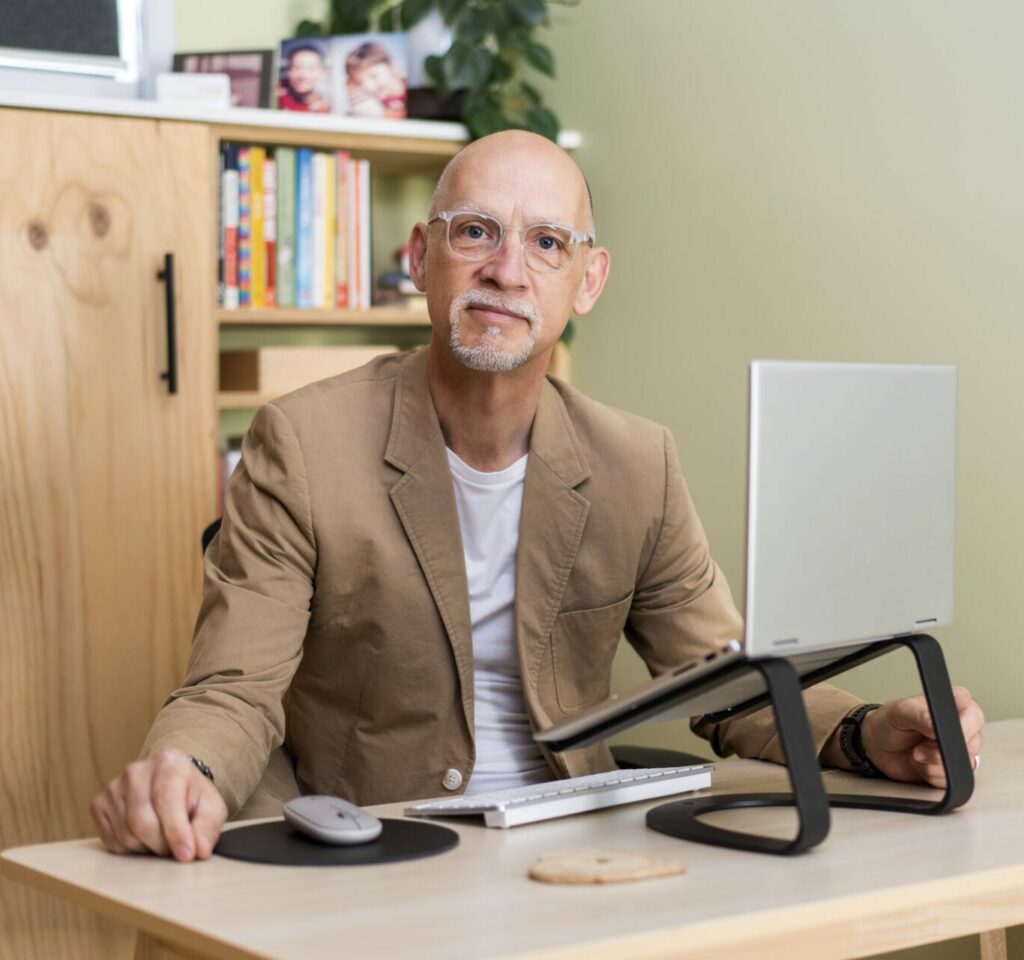
Facilitation
Safe, supportive spaces for targeted learning and team connection
Whether your proposed event aims to build team cohesion and harmony or respond to a specific learning or skill-development need, we have you covered.
We will work with you to design your half-day, full-day or multi-day agenda for your team or organisation and provide masterful facilitation which will engender confidence and allow you to let go the reins on the day.
Chris Pye’s background and qualifications in Community Education and Applied Theatre Practice combine to bring both a strategic approach and a creative flair to the facilitation of your own content, as well as offering a collection of workshops based on topics that have been most popular across our Human Services client base, to support the development of thriving teams.
These include:
- Initiating Courageous Conversations (giving & receiving feedback and ‘calling out’ problem language and behaviours)
- Building a Trauma-Informed Care approach across your team and organisation
- Fostering Inclusion (to maximise psychological safety and productivity)
- Team-Care and Self-Care (for safe, sustainable and thriving teams)
- The 9 Rs (Conflict micro-skills for building safe and supportive communication)
- Workplace Animations (Harnessing experiential learning to transform difficult conversations)
- 5 Leadership Keys (a framework for conscious and confident leadership)
Check out the full descriptions of these workshops below and feel free to connect with us to find out how we can tailor these to the specific needs of your team or organisation.
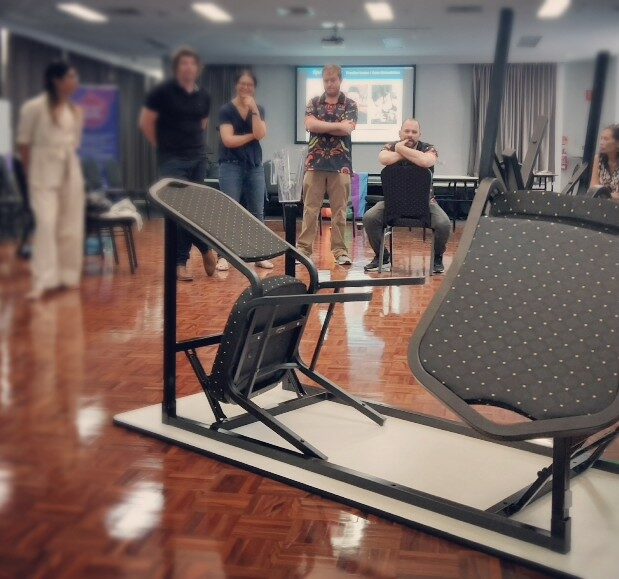
Workshops
Initiating Courageous Conversations
(including giving & receiving feedback and ‘calling out’ problem language and behaviours)
Providing feedback to team members, managers or direct reports can provoke anxiety. Presenting a person with a challenging assessment of something they have said or done is never a walk in the park. It may feel like it goes against our strong desire for harmony and the building of relationship.
So, it’s no wonder that we have often been taught to ‘sandwich’ our ‘negative’ feedback between two slices of ‘positive’ feedback. But this only strengthens the narrative that receiving feedback is undesirable, when feedback can be a gift, if we use it to learn and grow.
There are also moments, in the life of a team or work environment, when we need to interrupt language or behaviour which we assess as threatening to the psychological safety of other team members or clients. Unlike feedback, which we can often take time to formulate, ‘calling out’ (or ‘calling in’) challenging behaviour often needs to take place immediately.
In this workshop, you will be introduced to the powerful tools of ‘SBI’ and ‘Calling in / calling out’ and guided in their practical implementation across your team or workforce, The results will be increased psychological safety and a shared language, emboldening all staff members to find the courage to engage in courageous conversations.
What you get:
- A mix of whole group discussion and pair work, to optimise engagement and safety
- Worksheets and infographics provided to extend your learning and integration beyond the session
- Masterful, trauma-informed facilitation that prioritises the safety and inclusion of all participants

The 9 Rs
Conflict micro-skills for building team safety and cohesion
Drawing on a wealth of sources, across thirty years of working within and alongside the Helping Professions, Facilitator, Counsellor and Coach, Chris Pye presents his 9 Rs framework.
The 9 Rs comprise nine core micro-skills essential for transforming problem conflict into creative conversations that help deepen our awareness of ourselves and each other, towards more harmonious and cohesive team environments.
In this workshop, we will identify our strengths and our learning edges, and focus on developing skills in the areas where we need to grow.
The 9 Rs provide an invaluable foundation for the building of a team culture that values clarity, accountability and connectedness, for the mitigation of work stress and potential burnout.
What you get:
- Intensive pair work that helps you focus on the areas of individual need for you
- Exclusive access to a suite of resources to support your ongoing learning and implementation of the 9 Rs
- Masterful, trauma-informed facilitation that prioritises the safety and inclusion of all participants
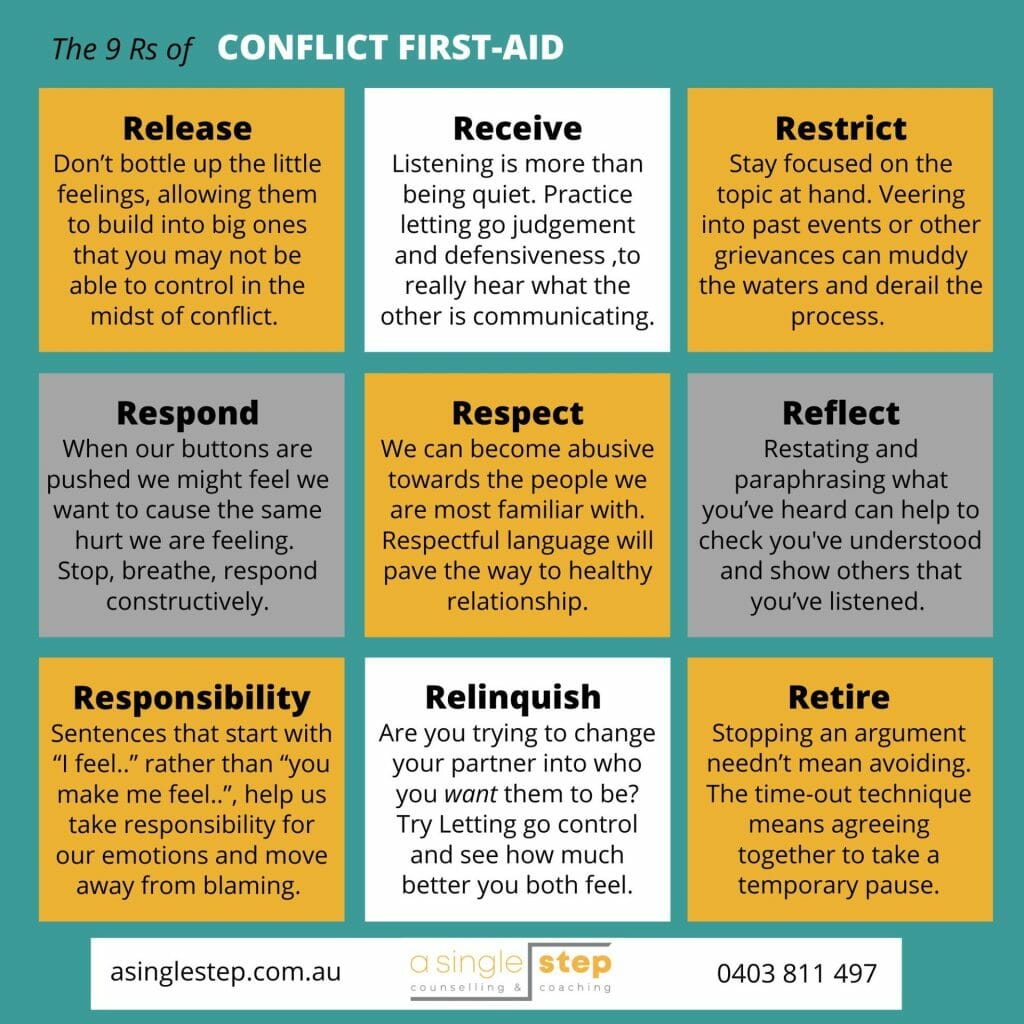
Meetings that Matter
A frequent complaint I hear from team members is that despite time being precious, and resources stretched, we continue to have meetings which feel unproductive, unnecessary, and ultimately frustrating.
In fast-paced, stressful work environments, it is hard to find the time and headspace to hit the pause button and take a clear and creative look at how, why and when we meet. Doing so can transform team meetings into intentional and energising spaces that reinforce culture, build relationships, and get things done.
Meetings that Matter (MTM) is a half-day or full-day workshop that will lead your team through a powerful process to identify the purpose of meetings and develop structures that creatively and efficiently serve them.
What you get:
- Frameworks and templates to support the creative and efficient restructuring of team meetings
- Small and large group tasks that optimise the creation of new ideas, tailored to your specific context
- Access to a suite of resources to support your ongoing learning and implementation
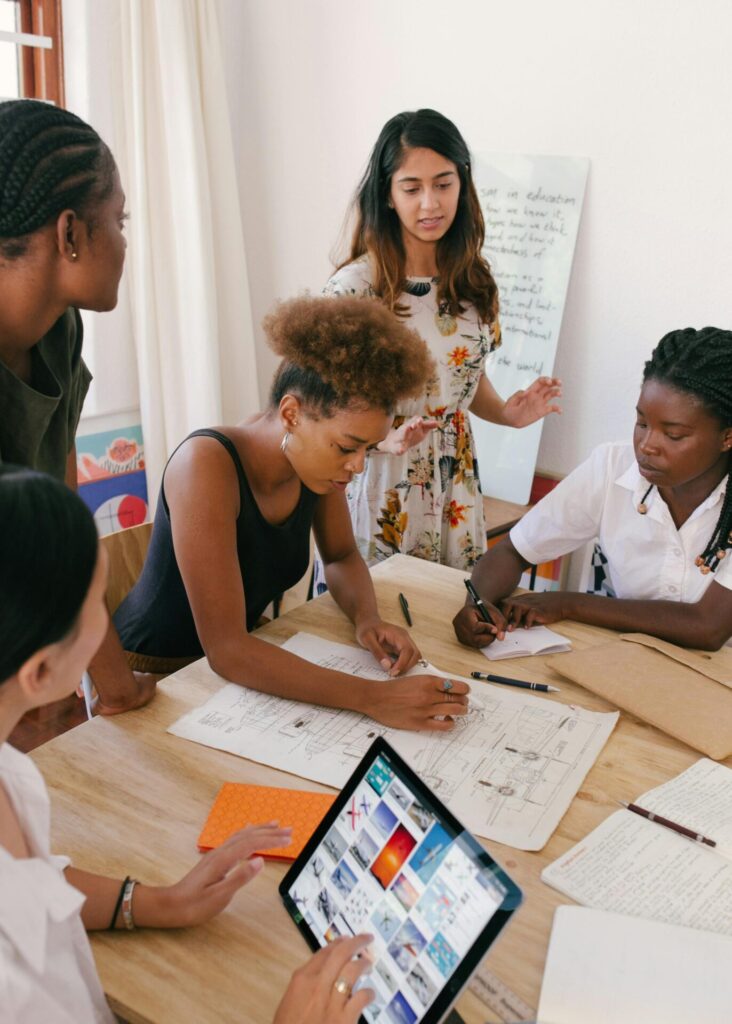
Care and Wellness
For Safe and Sustainable Teams
According to 2014’s State of Workplace Mental Health in Australia Report,
One in five Australians take time off work due to stress, anxiety, depression or mental ill-health.
Workplace stress costs Australia an estimated 14 billion dollars per year and contributes to instability and uneven workload distribution across organisations.
It’s important that we move beyond ‘self-care’, which places responsibility on the individual employee to sustain their mental health and wellness in the workplace.
A trauma-informed care approach helps us recognise the high levels of trauma in the lives of both clients and workers within the helping professions. It also reminds us that, as managers and leaders, we have a responsibility to create a work environment that is not only physically safe but psychologically and emotionally safe too.
In this workshop, we consider the range of practical strategies that we can use to build safety and support into our team operations and culture.
What you get:
- Practical strategies for building wellness into your team’s daily activities
- Neurobiologically-informed information about the power of mindfulness to support team wellness
- Games and creative activities to increase fun and social connectedness at work

Building a Trauma Informed Care (TIC) Approach in your Team
Managers within the Human Services and Community Services sectors are increasingly recognising the disproportionate levels of trauma in the lives of not only our clients but also our workforce.
Drawing on the experience and formulations of American peak bodies such as the Trauma Research Centre and the Traumatic Stress Institute, A Single Step supports teams and organisations within the helping professions to build and sustain workplace environments that are psychologically and emotionally safe for everyone.
This workshop guides participants to consider the things that can be done at team level right now, as well as introducing a maturity framework for ongoing design and implementation, towards a safer, more sustainable team and organisational culture, now and into the future.
What you get:
- Frameworks and templates to support your TIC planning process
- Practical brainstorming and groupwork exercises aimed at translating theory to your team and organisational context
- Exclusive access to a suite of resources to support your ongoing learning and implementation of TIC
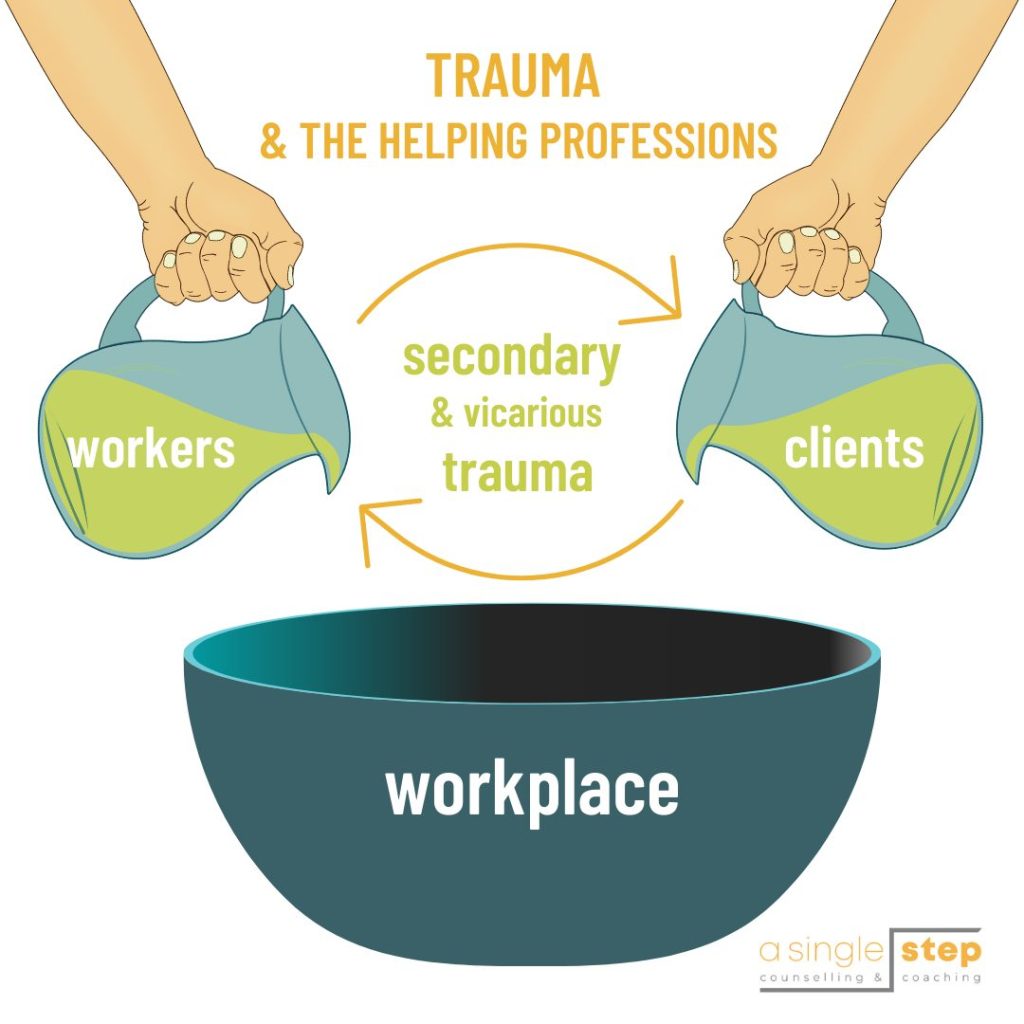
Fostering Inclusion
In short, Implicit Bias describes the unconscious beliefs that our brains have learned, generally from birth, to help us navigate and survive a complex social world.
Research has shown that, regardless of how progressive or egalitarian our conscious belief systems may be, we all hold implicit biases which inform our choices and resulting behaviours.
This is one of the concepts we will unpack in this workshop about fostering greater inclusion in our teams and organisation, towards greater collaboration and improved performance and productivity.
Today, CEOs and Senior Leaders understand that a diversity of cultures, ideas, and ways of doing and being result in a more psychologically safe workforce. This in turn promotes more open sharing of these ideas, leading to better performance outcomes.
Diversity also means increased engagement with diverse stakeholders and potential client demographics. In short, inclusion makes sense for everyone.
Of particular importance for those working in the areas of recruitment, marketing and leadership, an understanding of Diversity and Inclusion is essential for any team wanting to move from surviving to thriving.
What you get:
- Theoretical frameworks explaining key concepts of Diversity & Inclusion
- Strategies and tools to support us in recognising our biases and moving towards more inclusive leadership
- Resources to support continued learning and development
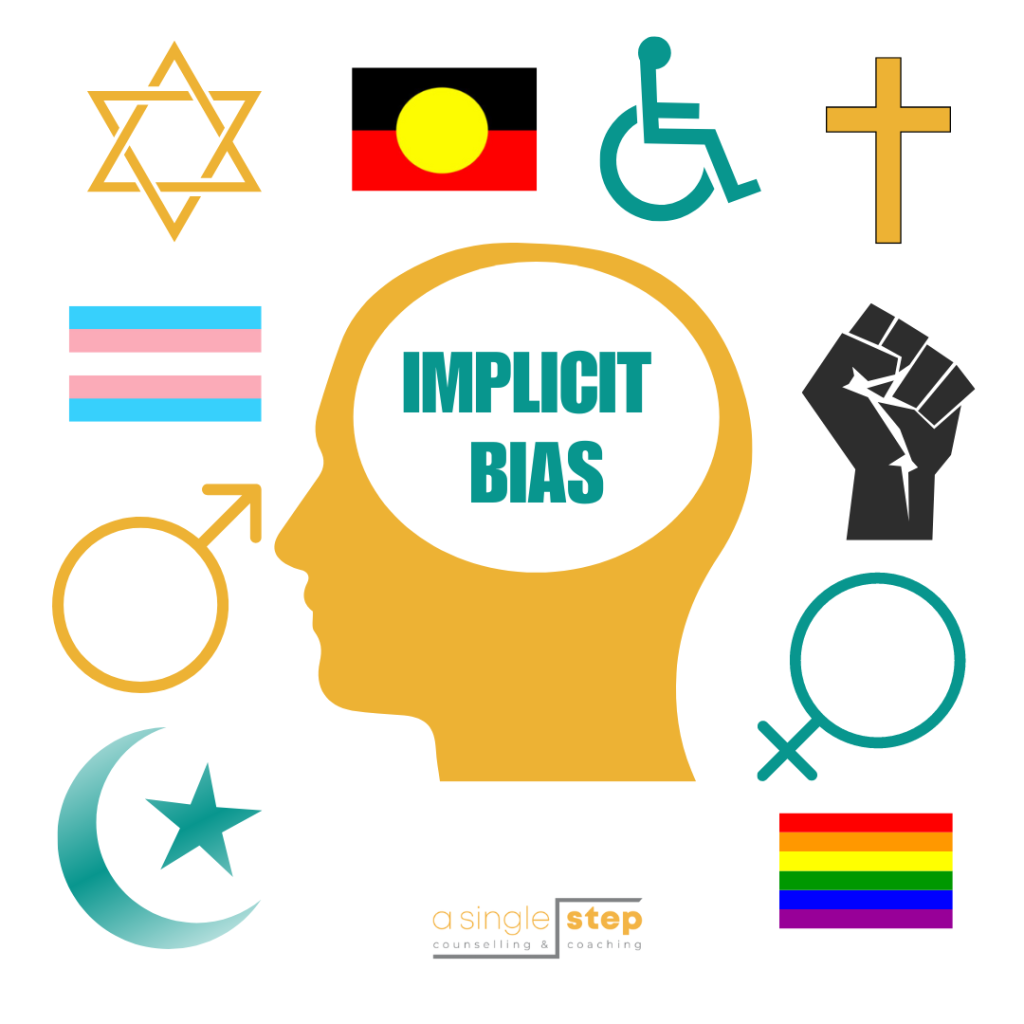
5 Keys of Leadership
For teams to truly thrive, we must understand and embody the difference between management and inspired leadership.
In this workshop we invite you to re-ignite your passion for the inspired leadership of teams, introducing you to A Single Step’s own ‘5 Keys of Leadership’. This model is drawn from many sources, over Chris Pye’s thirty years working in and alongside Human and Community Services organisations. It comprises the vital elements leaders need for the effective leadership of their teams. They include:
- Lead with Self-Awareness
- Lead with Courage
- Lead with Purpose
- Lead with Trust
- Lead with Communication
We will unpack each of these core elements, explore their vital leadership role and consider their practical application, helping you harness the 5 Keys to take your team leadership to the next level.
What you get:
- Group and individual activities to help deepen your understanding of the 5 Keys
- A 5 Keys worksheet to help you establish leadership goals and chart progress
- Practical strategies and exercises to help you apply the 5 Keys at work
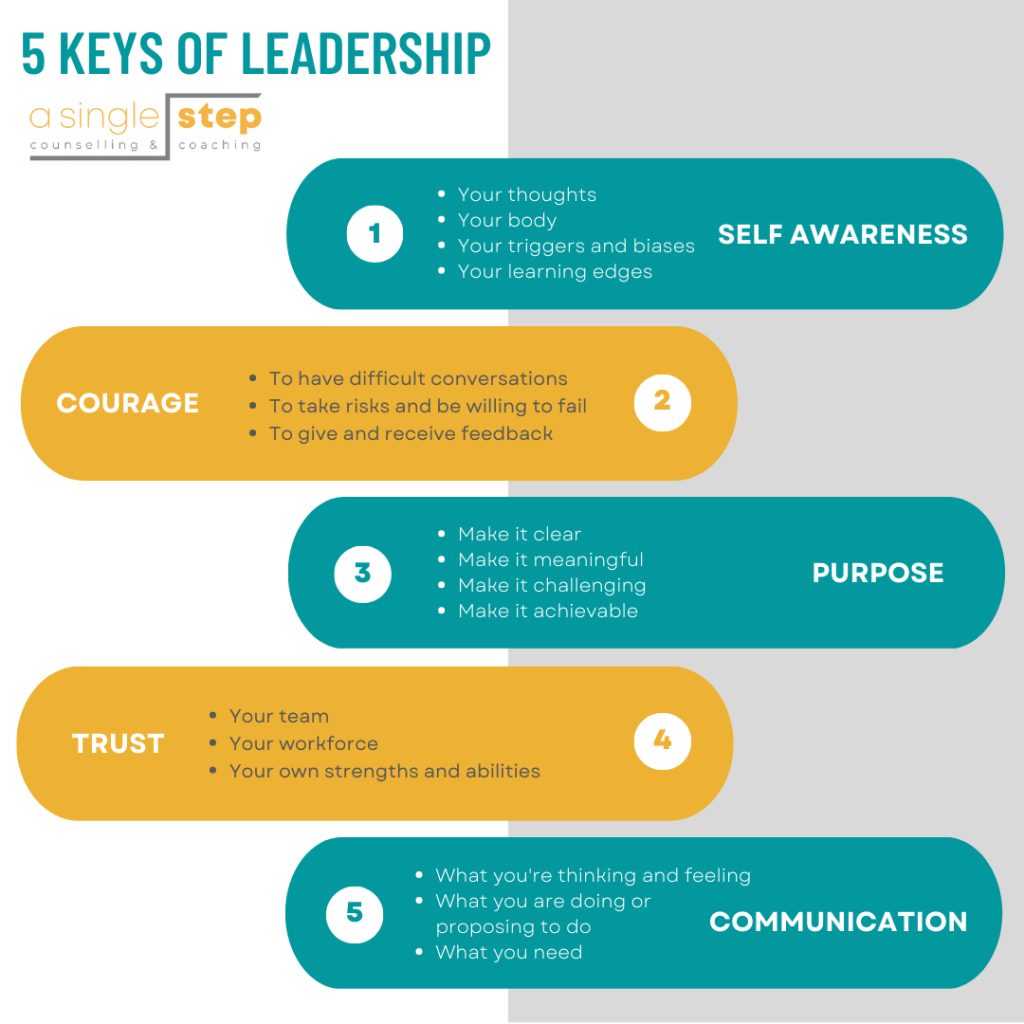
Blog highlight
For further support in building trust, cohesion, and productivity in your team, check out our current blog highlight.
Teams Enquiry
Please fill in the form below and we’ll be in touch as soon as possible.
A team is not a group of people that work together. A team is a group of people that trusts each other
Simon Sinek
A Single Step is a certified facilitator of the Team Diagnostic Survey (TDS)

